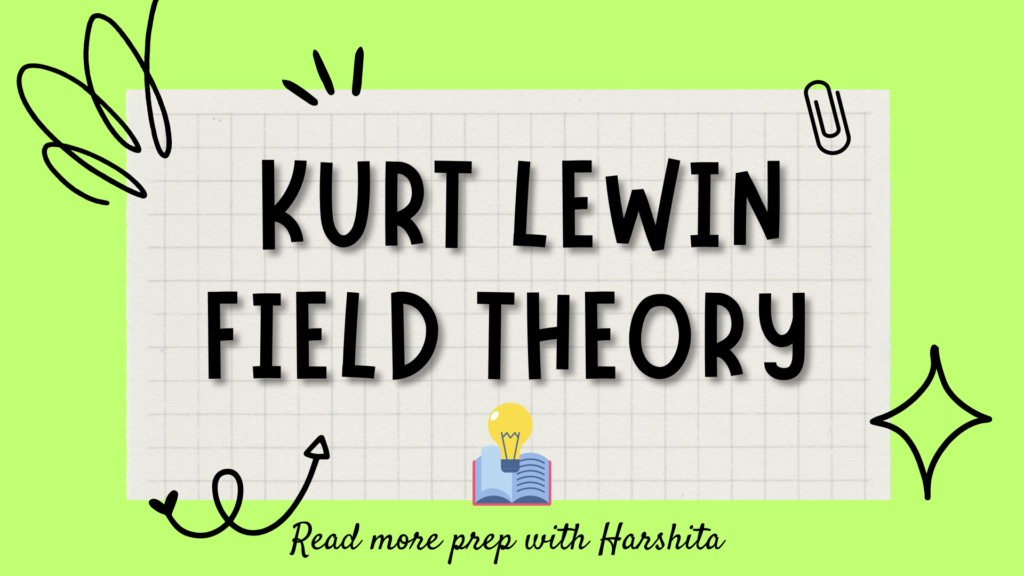Kurt Lewin field theory is a psychological theory that describes behavior as a result of the interactions between a person’s internal psychological state and the external environment. According to this theory, behavior is influenced by the person’s psychological needs, attitudes, values, and goals as well as the social and physical environment they are in.
The theory is based on the idea that a person’s behavior is the result of two main factors: the person’s internal psychological state (such as their needs, values, and attitudes) and the external environment they are in (such as social norms, physical surroundings, and cultural influences). These factors interact with each other in complex ways, and behavior is the outcome of these interactions.
Lewin proposed that a person’s psychological state can be thought of as a “field” of forces that interact with the environment. This field is made up of both driving and restraining forces, and the behavior of the person will depend on the balance between these forces. Driving forces are those that push a person towards a particular behavior, while restraining forces are those that inhibit or discourage that behavior.
For example, if a person is trying to quit smoking, the driving forces might include their desire to be healthier and live longer, while the restraining forces might include their addiction to nicotine and the social pressure from friends who also smoke. The person’s behavior will depend on the balance between these driving and restraining forces.
Lewin’s field theory has been influential in many areas of psychology, including social psychology, organizational psychology, and developmental psychology. It emphasizes the importance of understanding the complex interactions between internal psychological factors and external environmental factors in determining behavior.

Also Visit : Prep with Harshita


One thought on “Kurt Lewin Field Theory”